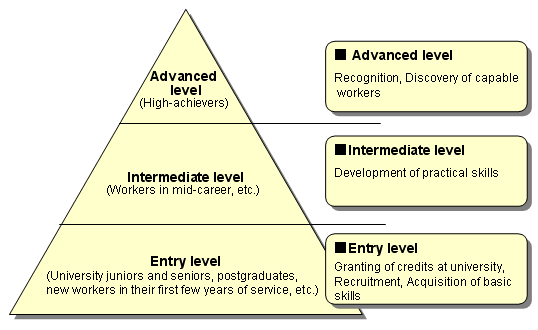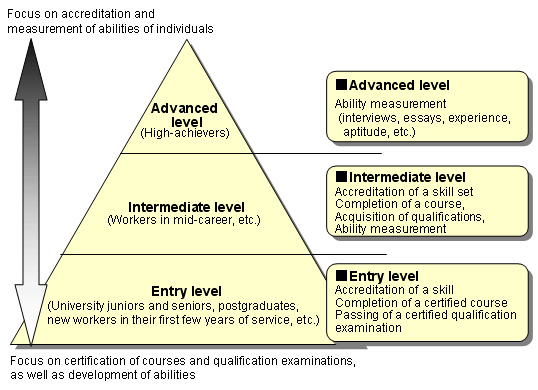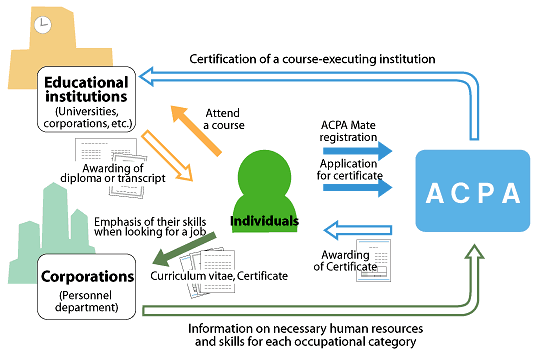
Certificate Service
Certification of individuals
The ACPA awards each individual who has completed a certified course with the Certificate. The Certificate proves that the awardee has acquired the skills provided by the certified course. Trainees need to sign up for an ACPA Mate beforehand to receive certification.
Levels and certification procedures
Practical business abilities are considered a combination of technical knowledge, skills and experience, and required abilities vary depending on the level determined by the age and length of service of each worker.
The definition of each level is as shown below. These definitions have been determined on the basis of the IT Skill Standard (ITSS) established by the Ministry of Economy, Trade and Industry in Japan.
| 1. Entry level | Capable of performing the given duties under the guidance of a person(s) at a higher level of the same occupational category, or by utilizing own skills, as well as identifying and solving problems associated with the duties. Main target individuals: University juniors and seniors, postgraduates, new workers in their first few years of service, etc. |
|---|---|
| 2. Intermediate level | Capable of performing the given duties of the occupational category without assistance from others. In addition, capable of giving guidance to personnel at the entry level, and playing a leading role in technological, methodological and business operational aspects within the company and for a particular project. Main target individuals: Workers in mid-career |
| 3. Advanced level | Capable-as the manager of the occupational category-of leading technological development and commercialization, and playing an important role in formulating a strategy. Main target individuals: High-achievers who possess advanced expertise and fully use it to lead the business. |
The entry level is further divided into the following three levels of occupational specialty.
| 1. Entry level | |
| Level 0 |
|
|---|---|
| Level 1 |
|
| Level 2 |
|
The following diagrams show the description and certification principle of each level.
Certification of individuals: Description of each level

Certification procedure of each level

Certificate
The ACPA issues a Certificate to those who have completed an ACPA-certified course or who have passed an ACPA-certified qualification examination. To receive a Certificate, a trainee of a certified course, for example, needs to obtain a diploma issued by the course-executing institution and apply to the ACPA for certification. The ACPA then makes an assessment, and if certification is granted, issues a Certificate.
A Certificate is issued for each skill (small subcategory of skills) or skill set (a set of several skill items required for a particular occupational category) acquired.
Trainees awarded with certification are considered to have been proved by a neutral organization (ACPA) as possessing particular skills. They can then use the certification when looking for a job or reporting to their company about their improved skills as proof of their practical abilities.

